The NABH Denial-of-Care Portal is Now Live!
The National Association for Behavioral Healthcare is pleased to introduce the NABH Denial-of-Care Portal, a resource for members to provide information about their experiences with managed care organizations that impose barriers to care through insurance-claim denials.
NABH’s Managed Care Committee has worked for more than a year to develop the Denial-of-Care Portal as a way to collect specific data on insurers who deny care—often without regard to parity or the effects on patients.
This NABH member-only, survey-like tool allows users to add the name of a managed care organization, type of plan, level of care, type of care (mental health or substance use disorder), duration of approved treatment, duration of unapproved treatment, criteria used to deny a claim, and more.
The portal allows members to submit individual examples of claim denials or upload multiple entries via Excel. It also includes sections on appeals and physician participation. In time, the tool could be a valuable resource for the NABH team’s advocacy efforts.
“One of the best ways we can advocate for parity enforcement with policymakers and regulators is to provide hard data from our members that show how insurers are not complying with the landmark 2008 parity law,” said NABH President and CEO Shawn Coughlin. “We hope to gather this critical data through our new Denial-of-Care Portal.”
Please e-mail Emily Wilkins, NABH’s administrative coordinator, if you have questions.
As always, thank you for all you do each day to support and advance NABH’s mission and vision!
HHS Provides Exemptions for Buprenorphine Prescribers for Fewer Than 30 Patients
The U.S. Department of Health and Human Services (HHS) announced Tuesday that practitioners prescribing buprenorphine, a controlled substance, for opioid use disorder to fewer than 30 patients are exempt from certain regulatory requirements codified under 21 U.S.C. 823(g)(2)(B)(i)-(ii).
Under the new guidance, physicians, physician assistants, nurse practitioners, clinical nurse specialists, certified registered nurse anesthetists, and certified nurse midwives are exempt from having to make certain training related certifications and certifying their capacity to provide counseling and other ancillary services. The guideline does not remove the DATA 200 Waiver, otherwise known as the ‘X-Waiver.’
Providers are still required to file a Notice of Intent with the Substance Abuse and Mental Health Services Administration. The exemption applies to practitioners who are state-licensed and DEA-registered. It also generally limits prescribing to patients who are located in states where the practitioner is licensed.
Practicing under this exemption does not count toward the time requirements for prescribing to a higher patient limit under 21 U.S.C. 823(g)(2)(B)(iii). This exemption also applies to other Schedule III, IV, and V drugs.
Tuesday’s guidance encourages practitioners to provide access to psychosocial services to improve treatment retention and outcomes. In addition, medical education institutions are strongly encouraged to implement comprehensive training in substance use disorder diagnosis and management.
In late January, the Biden administration placed a freeze on Trump administration guidelines that intended to exempt physicians from the X-Waiver. That notice cited clinical concerns and stated the Executive Branch did not have the legal authority to make the change.

